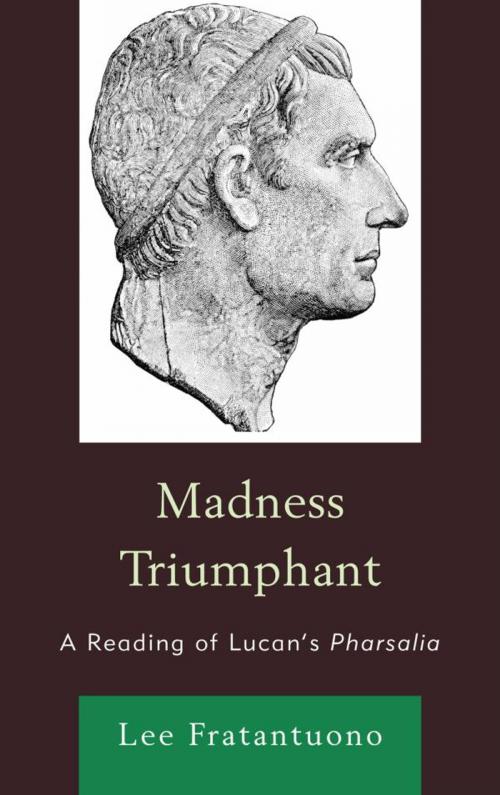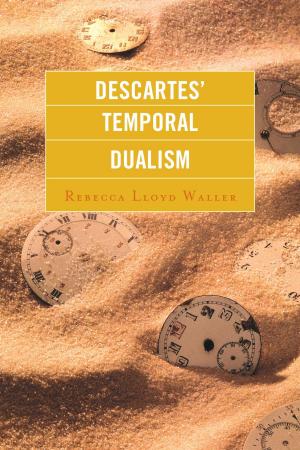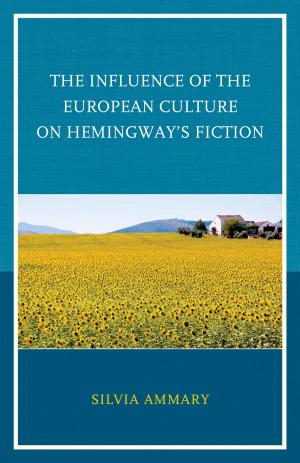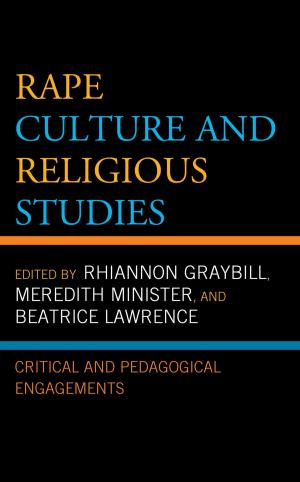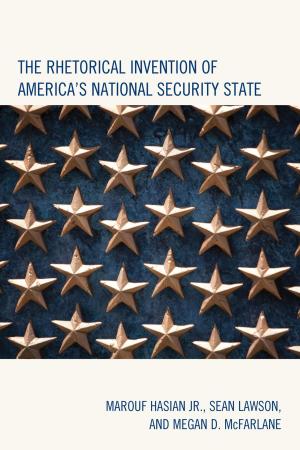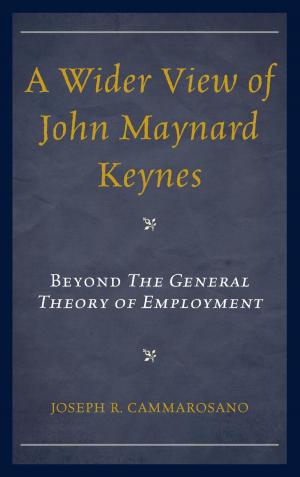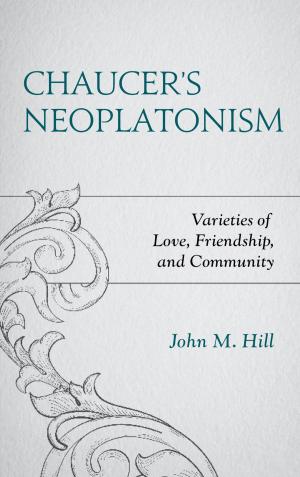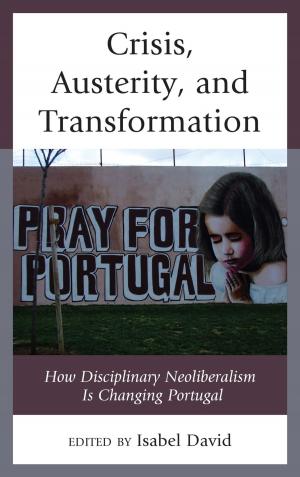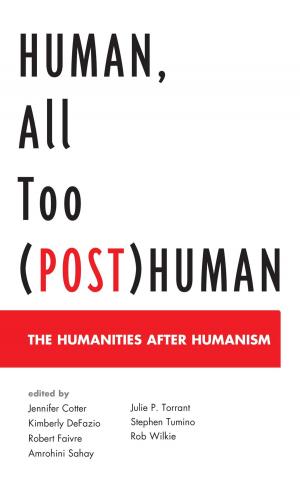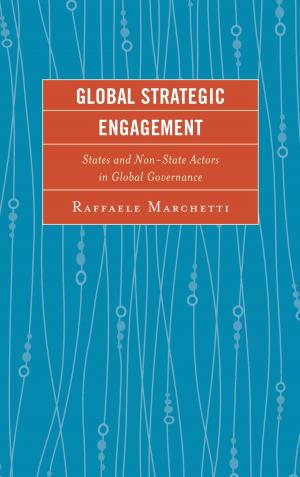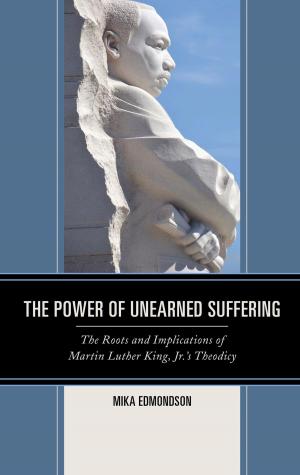Madness Triumphant
A Reading of Lucan's Pharsalia
Nonfiction, Religion & Spirituality, Philosophy, Ancient, Political| Author: | Lee Fratantuono | ISBN: | 9780739173152 |
| Publisher: | Lexington Books | Publication: | June 28, 2012 |
| Imprint: | Lexington Books | Language: | English |
| Author: | Lee Fratantuono |
| ISBN: | 9780739173152 |
| Publisher: | Lexington Books |
| Publication: | June 28, 2012 |
| Imprint: | Lexington Books |
| Language: | English |
Madness Triumphant: A Reading of Lucan’s Pharsalia offers the most detailed and comprehensive analysis of Lucan’s epic poem of the civil war between Caesar and Pompey to have appeared in English. In the manner of his previous books on Virgil and Ovid, Professor Fratantuono considers the Pharsalia as an epic investigation of the nature of fury and madness in Rome, this time during the increasing insanity of Nero’s reign. The volume proceeds chapter by chapter, book by book through Lucan’s poem, as it unfolds the thesis that the poet Lucan crafted an epic response to both Virgil and Ovid, the closing movement in a three act tragedy of madness. In response to the Aeneid, Lucan raises the idea that the final ethnographic settlement of Trojans and Italians may not have been for the best, while in response to the Metamorphoses, he explores the idea that the immortality achieved by the poet may not, after all, prove to be a blessing. An introduction and bibliography provide additional direction for the study of this greatest surviving work of literature from the so-called Silver Age of Neronian literature, while the individual chapters offer in-depth bibliographical citations and extensive annotation as a guide to further study of the poem. Lucan’s poem is revealed to be the consummate hymn to fury, as the poet offers a return to the opening of Homer’s Iliad and the wrath of Achilles, which is now viewed as part of an unending cycle of madness that will end only in the flames of a global conflagration that will consume all things. The pervasive intertext of Lucan’s epic poem with his predecessor Manilius’ Astronomica is also investigated, as the nature of Lucan’s response to both Stoic and Epicurean antecedents is explored. Manilius’ stars are virtually sprinkled through the Pharsalia, as the heavens offer a celestial canvas for the poet of fury to illustrate the beautiful lies that may ultimately be shown to conceal even more seductive truths.
Madness Triumphant: A Reading of Lucan’s Pharsalia offers the most detailed and comprehensive analysis of Lucan’s epic poem of the civil war between Caesar and Pompey to have appeared in English. In the manner of his previous books on Virgil and Ovid, Professor Fratantuono considers the Pharsalia as an epic investigation of the nature of fury and madness in Rome, this time during the increasing insanity of Nero’s reign. The volume proceeds chapter by chapter, book by book through Lucan’s poem, as it unfolds the thesis that the poet Lucan crafted an epic response to both Virgil and Ovid, the closing movement in a three act tragedy of madness. In response to the Aeneid, Lucan raises the idea that the final ethnographic settlement of Trojans and Italians may not have been for the best, while in response to the Metamorphoses, he explores the idea that the immortality achieved by the poet may not, after all, prove to be a blessing. An introduction and bibliography provide additional direction for the study of this greatest surviving work of literature from the so-called Silver Age of Neronian literature, while the individual chapters offer in-depth bibliographical citations and extensive annotation as a guide to further study of the poem. Lucan’s poem is revealed to be the consummate hymn to fury, as the poet offers a return to the opening of Homer’s Iliad and the wrath of Achilles, which is now viewed as part of an unending cycle of madness that will end only in the flames of a global conflagration that will consume all things. The pervasive intertext of Lucan’s epic poem with his predecessor Manilius’ Astronomica is also investigated, as the nature of Lucan’s response to both Stoic and Epicurean antecedents is explored. Manilius’ stars are virtually sprinkled through the Pharsalia, as the heavens offer a celestial canvas for the poet of fury to illustrate the beautiful lies that may ultimately be shown to conceal even more seductive truths.
